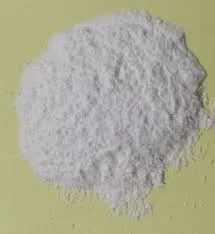- Afrikaans
- Albanian
- Amharic
- Arabic
- Armenian
- Azerbaijani
- Basque
- Belarusian
- Bengali
- Bosnian
- Bulgarian
- Catalan
- Cebuano
- Corsican
- Croatian
- Czech
- Danish
- Dutch
- English
- Esperanto
- Estonian
- Finnish
- French
- Frisian
- Galician
- Georgian
- German
- Greek
- Gujarati
- Haitian Creole
- hausa
- hawaiian
- Hebrew
- Hindi
- Miao
- Hungarian
- Icelandic
- igbo
- Indonesian
- irish
- Italian
- Japanese
- Javanese
- Kannada
- kazakh
- Khmer
- Rwandese
- Korean
- Kurdish
- Kyrgyz
- Lao
- Latin
- Latvian
- Lithuanian
- Luxembourgish
- Macedonian
- Malgashi
- Malay
- Malayalam
- Maltese
- Maori
- Marathi
- Mongolian
- Myanmar
- Nepali
- Norwegian
- Norwegian
- Occitan
- Pashto
- Persian
- Polish
- Portuguese
- Punjabi
- Romanian
- Russian
- Samoan
- Scottish Gaelic
- Serbian
- Sesotho
- Shona
- Sindhi
- Sinhala
- Slovak
- Slovenian
- Somali
- Spanish
- Sundanese
- Swahili
- Swedish
- Tagalog
- Tajik
- Tamil
- Tatar
- Telugu
- Thai
- Turkish
- Turkmen
- Ukrainian
- Urdu
- Uighur
- Uzbek
- Vietnamese
- Welsh
- Bantu
- Yiddish
- Yoruba
- Zulu
Nov . 27, 2024 19:41 Back to list
Effective Antiparasitic Treatments for Dogs to Ensure Their Health and Well-Being
Understanding Canine Antiparasitic Treatments
Parasites can significantly impact the health and wellbeing of dogs, often leading to serious medical conditions if left untreated. As loving pet owners, it's crucial to understand the types of parasites that commonly afflict canines and the antiparasitic treatments available to combat these threats.
Types of Parasites in Dogs
Dogs can be affected by various internal and external parasites. Internal parasites include gastrointestinal worms like roundworms, hookworms, tapeworms, and whipworms. These organisms reside within the dog's digestive tract, feeding on nutrients that the dog should receive, potentially causing malnutrition, weight loss, and other health issues.
External parasites, on the other hand, consist of fleas, ticks, mites, and lice. Fleas not only cause discomfort and itching but can also lead to allergic reactions and tapeworm infestations. Ticks are notorious for transmitting diseases such as Lyme disease and Rocky Mountain spotted fever, which can have serious consequences if not treated promptly.
Signs of Parasite Infestation
Recognizing the signs of parasitic infestation in dogs is key to early intervention
. Look for symptoms such as- Weight loss and lethargy A sudden drop in weight or a noticeable lack of energy can indicate internal parasites. - Vomiting and diarrhea Frequent gastrointestinal upset may point to worm infestations. - Itching or scratching Excessive scratching or biting at the skin can signal external parasites like fleas or mites. - Visible parasites In some cases, you might actually see parasites like fleas or ticks on your dog, or notice tapeworm segments in their stool.
dog antiparasitic treatment

Antiparasitic Treatments
There are several antiparasitic treatments available, tailored to combat both internal and external parasites. It’s crucial to consult with a veterinarian to identify the specific type of parasite affecting your dog and to create a suitable treatment plan.
1. Internal Parasite Treatments Most commonly, dewormers are used to treat internal parasites. These medications are often categorized based on the type of worms they target, such as - Fenbendazole Effective against roundworms and hookworms. - Pyrantel pamoate Commonly treats roundworms and hookworms. - Praziquantel Specifically targets tapeworms.
2. External Parasite Treatments There are numerous options available for managing external parasites—these include topical treatments, oral medications, and collars. Popular choices include - Spot-on treatments Such as Frontline or Advantage, which are applied directly to the skin and provide long-term protection against fleas and ticks. - Oral medications Products like NexGard and Bravecto are effective against fleas and ticks and provide convenience as they do not require topical application. - Insecticidal collars These provide continuous protection and are especially useful for outdoor dogs.
Prevention is Key
While treatments are effective, prevention plays a critical role in keeping your dog healthy. Regular veterinary check-ups, routine deworming, and consistent use of antiparasitic treatments can help guard against infestations. Maintaining a clean environment—such as cleaning up feces promptly and treating your home and yard for fleas—can further reduce the risk of parasite exposure.
Conclusion
Understanding antiparasitic treatments and their importance is essential for every dog owner. By being vigilant and proactive, you can protect your furry friend from the discomfort and health risks associated with parasites. Regular veterinary visits, combined with appropriate treatments and preventive measures, will help ensure a happy, healthy life for your canine companion.
-
Guide to Oxytetracycline Injection
NewsMar.27,2025
-
Guide to Colistin Sulphate
NewsMar.27,2025
-
Gentamicin Sulfate: Uses, Price, And Key Information
NewsMar.27,2025
-
Enrofloxacin Injection: Uses, Price, And Supplier Information
NewsMar.27,2025
-
Dexamethasone Sodium Phosphate Injection: Uses, Price, And Key Information
NewsMar.27,2025
-
Albendazole Tablet: Uses, Dosage, Cost, And Key Information
NewsMar.27,2025













